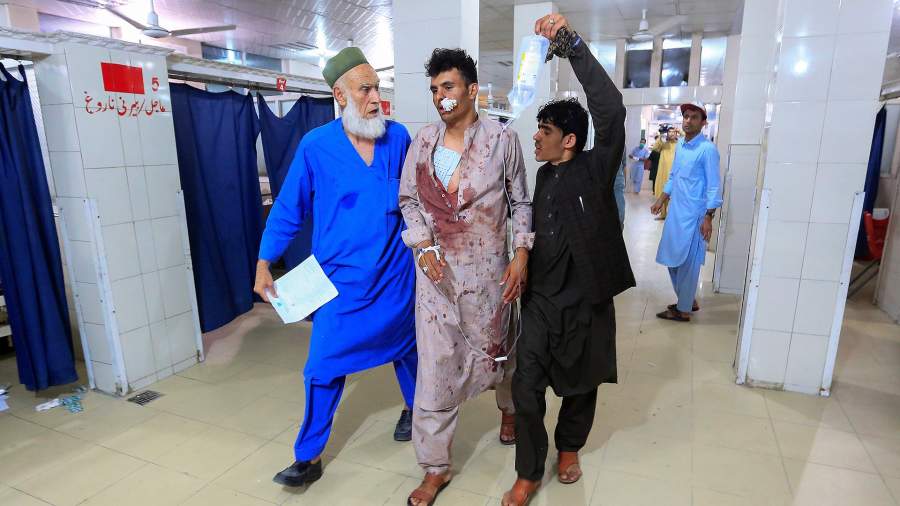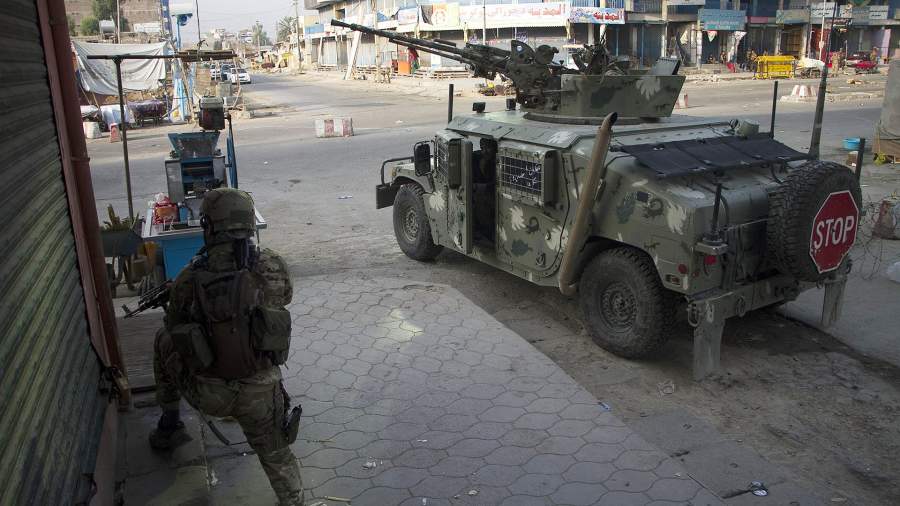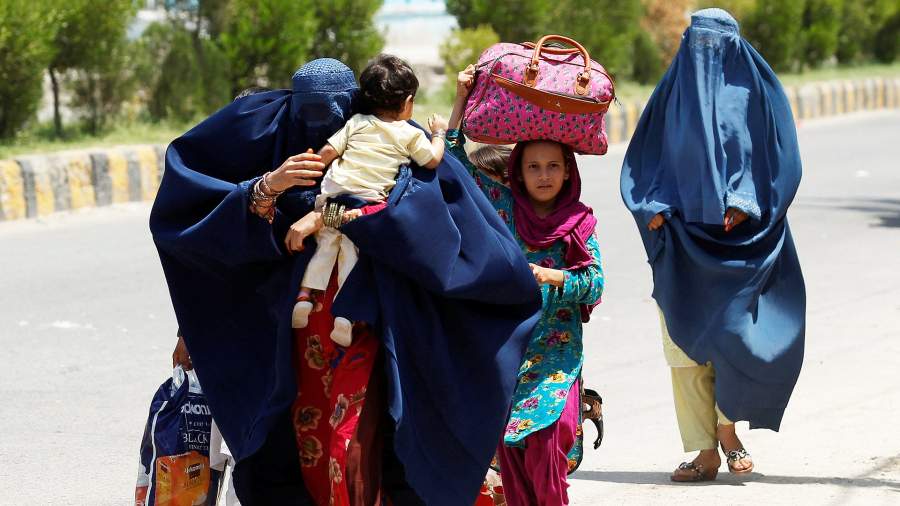The ceasefire that had been declared in Afghanistan during the Festival of the Sacrifice had ended, but the security forces and the Taliban were unable to fully comply with the ceasefire. Nevertheless, a pause in the military actions of the parties can be viewed as a possible prologue on the way to an inter-Afghan dialogue. Izvestia understood what hinders national reconciliation and what formats of international participation would be useful for resolving the situation in the republic.
The officially declared ceasefire on the occasion of the Muslim Feast of Sacrifice (Eid al-Adha, Eid al-Adha, Eid al-Adha) has ended in Afghanistan. Despite the ceasefire, recent incidents have not been without regular incidents, the most resonant of which was the attack by Islamic State militants (IS, an organization banned in Russia) on a prison in the city of Jalalabad (southeastern Nangarhar province) on August 2. The attack, apparently, occurred in response to the destruction of one of the leaders of the regional branch of IS “Khorasan” Assadullah Orakzai by Afghan security forces the day before. In addition, according to the Afghan Interior Ministry, the radical Taliban movement (banned in the Russian Federation) violated the ceasefire 38 times, as a result of which there are dead and wounded among the civilian population.
At the same time, the very fact of the adoption of a decision on a truce initiated by the Taliban and supported by the country’s official authorities testifies to the mutual willingness of the parties to overcome the thorny path to the inter-Afghan negotiations, having agreed on the necessary technical parameters for their launch. The prospects for a transition to direct dialogue between Kabul and the Afghan Taliban have traditionally been in a vague and ghostly state, since the latter flatly refused to maintain public contacts with the former, considering their power illegitimate.
The agreement signed on February 29 in Doha between the US government and the Taliban, which determines the procedure for the final withdrawal of American troops from Afghanistan and the launch of inter-Afghan negotiations, gave hope for tangible progress in resolving the intra-Afghan conflict. However, the content of this document was initially confidential, which gave rise to various rumors and interpretations of its provisions. In addition, the absence of representatives of the official Afghan authorities among the signatories became a pitfall that prevented the transition to the timely implementation of the agreements reached.
Table Of Contents
With hope for the elders
The key problem that hindered the inter-Afghan negotiations was the unresolved issue of the exchange of prisoners. In accordance with the agreement, the Americans undertook guarantees that about 5,000 Taliban supporters would be released from prisons, without first coordinating this issue with Kabul. This provoked a nervous reaction from Afghan President Ashraf Ghani, who refused to meet with the US Special Representative for Afghan Reconciliation Zalmay Khalilzad, and led to the disruption of the first inter-Afghan meeting scheduled for March 10.
Additional confusion in the situation was brought about by the aggravated political contradictions between Ghani and the head of the executive branch of Afghanistan, Abdullah Abdullah, which culminated in the signing on May 17 of an agreement on the division of powers and endowing the latter with the status of head of the Supreme Council for National Reconciliation. An equally important aspect that dragged out the negotiations is Kabul’s claims about the list of persons to be exchanged, as well as the desire to link this process with a reduction in armed violence by the Taliban. In turn, the latter insist on an amnesty for their captive comrades-in-arms, including those who have committed serious criminal offenses, and also declare their commitments to refrain from attacks exclusively on the objects of the American, not the Afghan military.
However, despite constant mutual accusations, the Afghan authorities and the Taliban leadership still proceed from the inevitability of the beginning of bilateral negotiations, but are seeking tactical advantages in order to strengthen their own positions. In particular, this is evidenced by the decision of the Afghan government to convene a deliberative Loya Jirga (All-Afghan Council of Elders) on August 7 in order to determine the fate of the remaining 400 prisoners, whose release the Taliban insist on. An important signal of the parties’ intention to move to direct dialogue is the current preparations for the first inter-Afghan meeting in Qatar, at which it is planned to move on to discussing the agenda of the negotiation process as a whole.
Vicious ties
At this stage, we can confidently say that there is a global consensus regarding the lack of alternative solutions to the Afghan problem by political and diplomatic means. This raises the question of the mechanisms and consequences of the integration of the Taliban Movement into the political landscape of post-conflict Afghanistan. One of the main requirements for his leadership, which was fixed in the February agreement, is the inadmissibility of providing the country’s territory to international terrorist groups for use against the United States and other states.
The Taliban continues to maintain contact with al-Qaeda in the Indian subcontinent, according to the latest report from the UN Analytical Support and Sanctions Monitoring Team.
In addition, based on the list of prisoners whose release the Taliban are demanding, there are suspicions that a number of IS militants are affiliated with their most radical wing. At the same time, although the Taliban themselves reject these assumptions, the prospect of maintaining such ties with them raises concerns in a number of countries in the region. First of all, we are talking about India, which is most distrustful of attempts to legitimize the Taliban in the Afghan political field, while at the same time considering them as members of a terrorist organization and a natural ally of Pakistan, rival India. At the same time, according to the special envoy of the Russian president for Afghanistan Zamir Kabulov, the prudent part of the Taliban movement, including the part of their leadership, is ready to conduct a substantive dialogue on participation in the future coalition government.
Looking for a format
The problematic point of the multilateral efforts of external players in the Afghan direction is the lack of a generally recognized inclusive format for promoting a peaceful settlement in this country. To the greatest extent, this status was achieved by the Moscow format of consultations promoted by Russia, which united authorized representatives of all states of the region during two meetings in 2017-2018. Moscow’s rather successful attempts to promote the inter-Afghan dialogue led to the intensification of the corresponding Russian-American contacts, including in the framework of several meetings of special representatives of Russia, the United States, China and Pakistan in 2019. In this regard, the issue of combining the capabilities of these two mechanisms is becoming topical in order to develop a consolidated platform with the participation of extra-regional powers (the United States and NATO allies), as well as countries that are broadly neighbors of Afghanistan (Russia, China, Pakistan, Iran, India, Kazakhstan , Tajikistan, Kyrgyzstan, Uzbekistan and Turkmenistan).
The complex international context, conditioned by a whole range of mutual disagreements between states on the global and regional agenda, can slow down their joint work in the field of an intra-Afghan peace settlement. On the one hand, Washington continues to rely on further support from Russia in this matter, especially since the Donald Trump administration has disavowed recent news stories about alleged attempts by Russia to offer a reward to the Taliban for the murder of American servicemen. The current diplomatic war between the United States and China is also unlikely to noticeably affect their contacts on the Afghan problem, which is on the periphery of relations between the two largest economies in the world. Undoubtedly, the Americans will have to maintain close cooperation with Pakistan, which traditionally has significant leverage over the Afghan Taliban.
At the regional level
However, in the current situation, it will be difficult for Washington to build constructive relations with Iran, which is under its most severe sanctions pressure, without whose assistance efforts to restore peace in Afghanistan will not be full-fledged. In addition, the United States seeks to support the mediation efforts of those regional states with which it has no obvious political contradictions. In particular, the Americans are particularly positive about the participation of Uzbekistan in this process; Tashkent’s efforts were substantively discussed during a recent videoconference between the heads of the foreign ministries of Afghanistan, Uzbekistan and the US Undersecretary of State (May 27), as well as the visit of US Special Envoy Khalilzad to Tashkent (June 30 – July 1). Washington’s deliberate emphasis on the mediating potential of Uzbekistan, including as one of the possible platforms for conducting inter-Afghan negotiations, is a tool to curb the growing authority of other regional mediators, including Russia, China and Iran, and to involve Central Asian states in pro-American geopolitical projects like the Great Central Asia “.
At the same time, the key to a peaceful settlement in Afghanistan is in the hands of the participants in the intra-Afghan conflict themselves, who must independently work out a consensus decision on the future structure of the Afghan statehood, without imposing any outwardly attractive, but little applicable to local realities, export schemes. It is also obvious that in the context of the complete withdrawal of the American armed forces announced by Washington by May 2021, the special role of Afghanistan’s neighbors in helping its reconstruction and development will objectively increase. In this situation, it is fundamentally important to consolidate a regional approach to solving the Afghan problem, taking into account the interests of absolutely all neighboring states and excluding attempts by any country to pull the blanket over itself.



